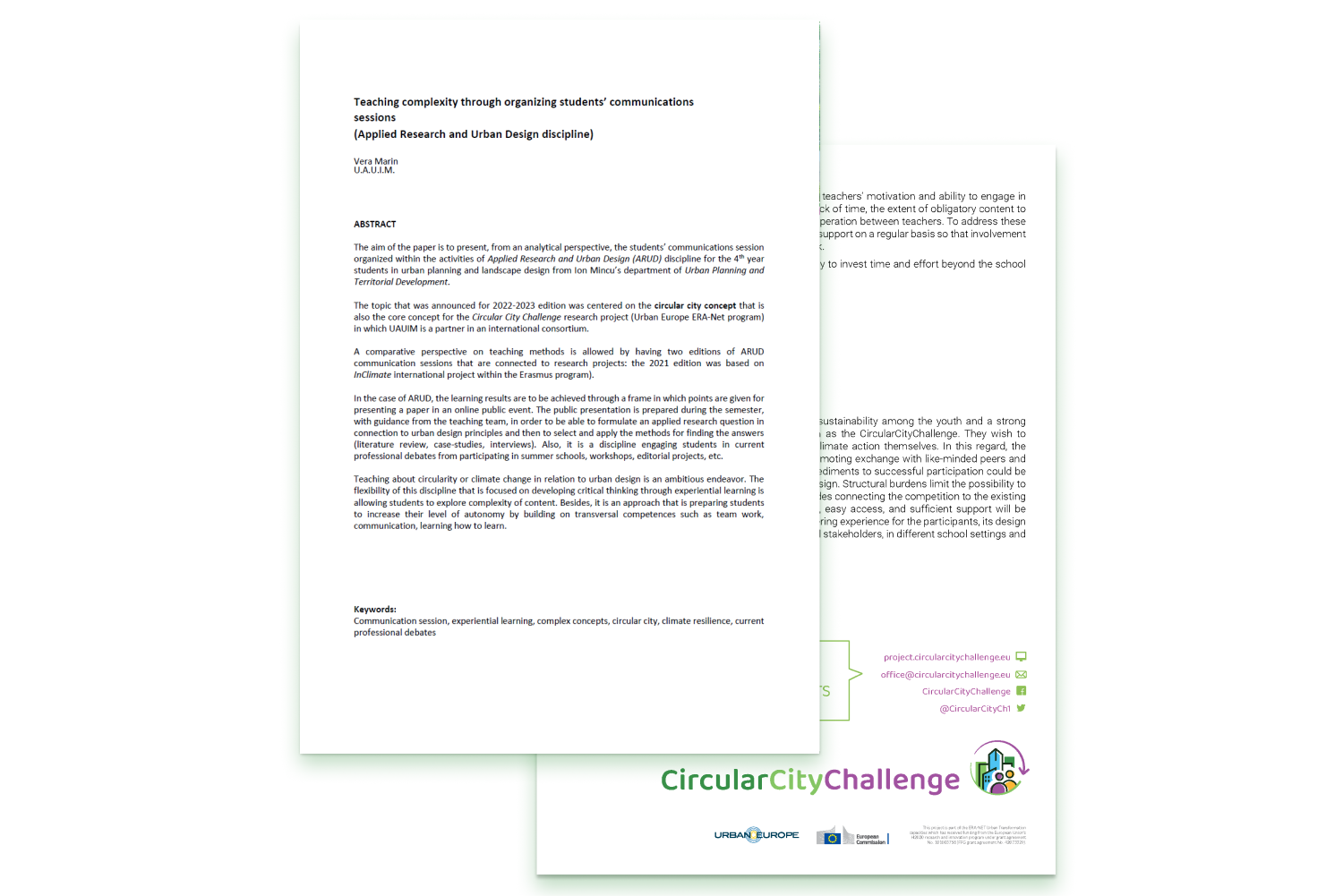
TEACHING COMPLEXITY THROUGH ORGANIZING STUDENTS’ COMMUNICATIONS SESSIONS
This
paper, presented by our consortium member Vera Marin from the University of
Architecture and Urbanism “Ion Mincu” (UAUIM) at the FAST: The
Festival for Architecture Schools of Tomorrow, explores the pedagogical
potential of organizing students’ communications sessions as a way of teaching
complexity in relation to urban design and circularity. The paper is based on
the experiences and outcomes of the Applied Research and Urban Design (ARUD)
discipline, which is offered to the 4th year students in urban planning and
landscape design at UAUIM.
The
ARUD discipline aims to develop the students’ critical thinking and transversal
competences, such as team work, communication, and learning how to learn,
through experiential learning and public presentation. The students are
required to formulate an applied research question in connection to urban
design principles, and to select and apply the methods for finding the answers,
such as literature review, case-studies, and interviews. The students are also
encouraged to engage in current professional debates by participating in summer
schools, workshops, editorial projects, etc.
The
paper focuses on the 2022-2023 edition of the ARUD discipline, which was
centered on the circular city concept, which is also the core concept for our
CircularCityChallenge project. The paper compares this edition with the
previous one, which was based on the InClimate international project within the
Erasmus program. The paper analyzes how the students’ communications sessions,
which were organized as online public events, helped the students to explore
the complexity of the content and to increase their level of autonomy. The
paper also discusses the challenges and opportunities of teaching about
circularity or climate change in relation to urban design, and the role and
responsibility of architecture education and practice in addressing these
issues.
The
paper is available for download. We hope that this paper will provide useful
insights and inspiration for educators, researchers, policymakers, and
practitioners who are interested in teaching and learning about urban
circularity and sustainability.
